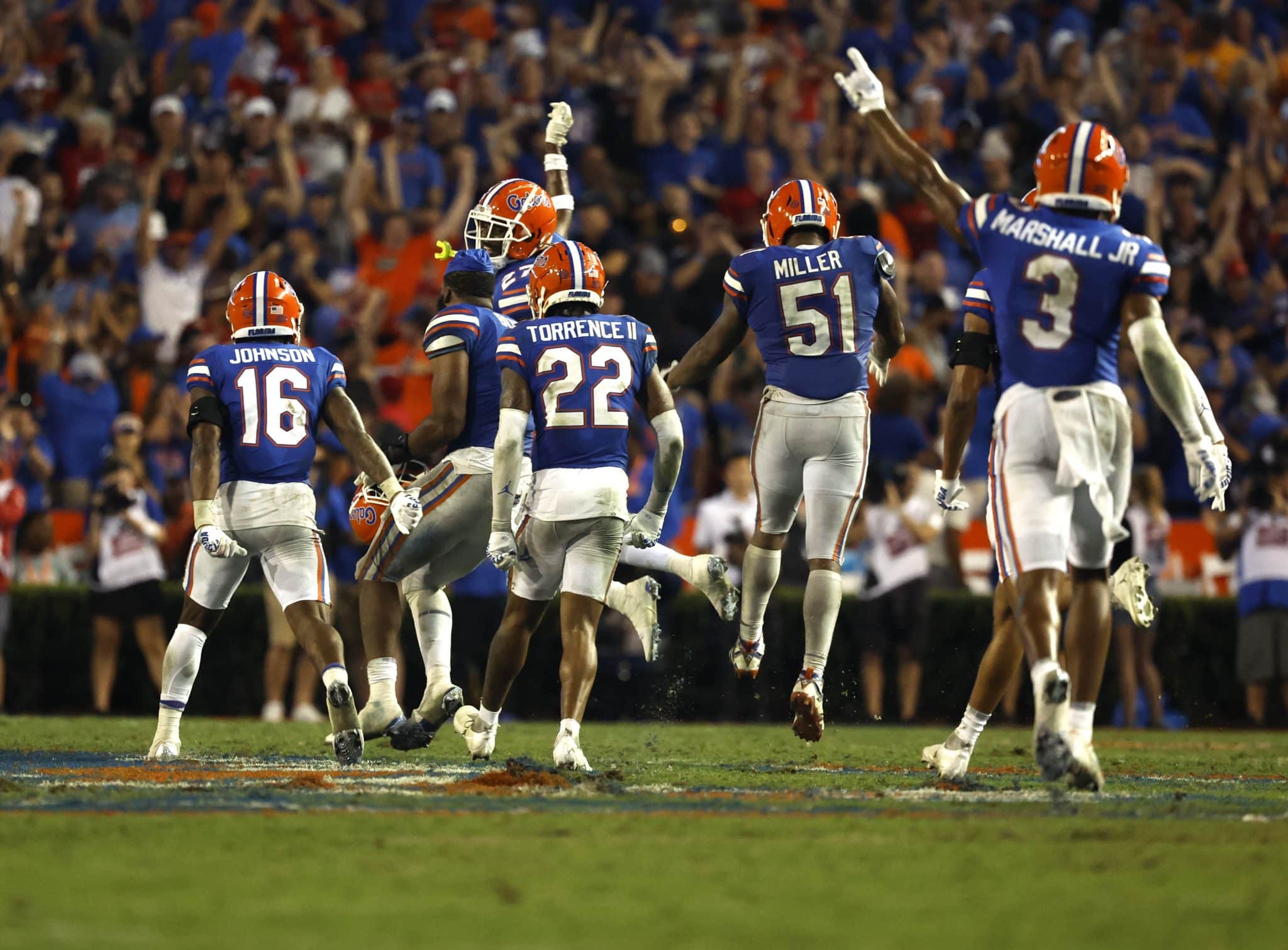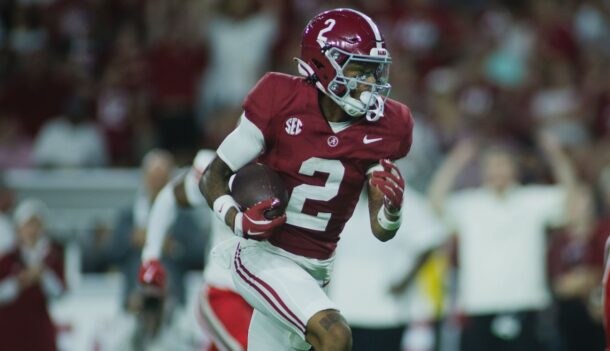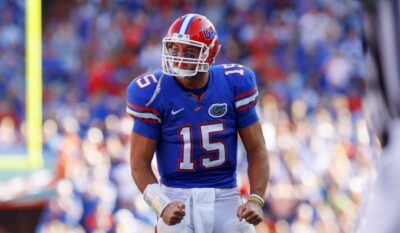
Hayes: Meet the man who is most responsible for Florida’s potential turnaround. And, no, he’s not a QB
By Matt Hayes
Published:
We’re focusing on the wrong thing here. We’re micro instead of macro.
Forget about the quarterback, if only for this exercise. Because if Florida can’t get off the field defensively, quarterback will be the least of its problems. Again.
“We’re going to hunt the ball, and we’re going to punish the ball carrier,” said Austin Armstrong, Florida’s new defensive coordinator.
And if that throwaway line doesn’t make you feel change is on the way, look at the alternative: It can’t be much worse than what has played out over the past 3 seasons.
Doesn’t matter who has been leading the show — former coach Dan Mullen or current coach Billy Napier — the defense has been, in a word, terrible.
Missed tackles, bad angles, slow pursuit, confused coverage, and a general inability to affect the offense. The past 3 years produced 3 of the worst defensive seasons in the history of the program.
When Vanderbilt scores 31 points on you and wins — in any season — you’ve got problems.
Enter Armstrong, the latest iteration of how to make it like it once was. Or at the very least, get off the field on 3rd down more consistently.
The baby-faced 29-year-old is the last thing you see when the idea of SEC defensive coordinator crosses your mind. He hasn’t coached at multiple teams in the conference, hasn’t been grinding on the recruiting trail in the South for years, hasn’t been standing in a raucous SEC stadium on a Saturday night deep into the second half searching his play call sheet for a stop on a critical 3rd-and-9.
The highlight of his brief resume before arriving at Florida in late February after Patrick Toney suddenly left for the NFL was his recent hire by Nick Saban to coach the Alabama linebackers after 2 seasons as DC at Southern Miss.
Armstrong grew up in York, Ala., about 45 minutes from Tuscaloosa, and dreamed of coaching for the Tide. Think about this: When Saban won his first national championship at Alabama in 2009, Armstrong was 16.
Sixteen.
Now think about just how impactful it was to tell Saban no, and join Napier for what has quickly become a significant rebuild.
He’s a son of Alabama with a thick southern accent that fires in a staccato buckshot. He played ball at Division III Huntingdon College in Montgomery, Ala., and willed his way into the cutthroat business of coaching college football the old-fashioned way.
He drove around the state of Alabama, stopping at every football-playing college and university, handing out resumes and shaking hands and telling his story. God only knows how many emails he also sent to the rest of the football-playing schools in the South.
So when you look at Armstrong’s brief resume, when you see his time at Southern Miss and the improvement the Eagles made, think bigger picture. It’s more than just numbers and getting off the field, Armstrong is one of those rare guys who lives it.
Some get into the business because they’re former players and they either can’t get the sport out of them or don’t know what else do. With others, it’s their DNA.
Armstrong once dressed up as Steve Spurrier for career day at his elementary school. As a 3rd-grader. Wore that dang visor, too.
Just like he does now, to every practice and every game.
“I’ve always wanted to be a coach for a long as I can remember,” Armstrong says.
Well, welcome to the big show in the SEC big top — where every game is a rock fight, and every decision is 2nd- and 3rd-guessed from Day 1. Where fan bases respond to failure with nicknames (see: “3rd and Grantham”) instead of support.
Where you’re only as good as the last 3rd down call you made.
“Austin is 29 years old,” Napier said, “But he probably works at football twice as much as most coaches. So he’s older than that.”
I’m not sure if that’s Napier convincing a rabid and unforgiving fan base, or convincing himself. The safe move for Napier would’ve been to hire a DC with SEC bloodlines, a coach who had been successful on the field and in the 24/7 world of recruiting.
But if you haven’t already figured this out, Napier is running this show his way. He’s not bending to pressure, and he sure as hell isn’t going to change his plan.
Again, it’s more than what Armstrong’s defenses produced at Southern Miss. Napier could’ve walked to the podium last month when introducing Armstrong and rattled off how Southern Miss improved defensively in his 2 seasons.
Or how Saban wanted Armstrong, or how Armstrong worked as a defensive analyst for Kirby Smart at Georgia. It’s about fit and function.
Armstrong worked for Napier at Louisiana and knows the process it took to fundamentally change that program. Despite what you’d think, it’s no different at Florida because change is as much or more about the human condition than getting off the field on 3rd down.
Once you change who a player is — the way he sees himself and the way he thinks and reacts – the metamorphosis on the field will take hold.
But let’s not kid ourselves: That change better happen sooner than later. Florida can’t afford another season of giving up nearly 30 points per game. Can’t afford another season of 3rd-down defense hovering at the 50% mark.
That’s right, 1 of every 2 3rd downs last season resulted in a 1st down for the opponent.
Armstrong can talk about a new aggressive style, and how Florida will make opponents earn every yard. He can talk about intensity and fighting for every yard, 53 and 1/3 wide and 100 deep.
Everything changes on that late August night in Salt Lake City, when Florida’s new DC gets his first opportunity against 2-time defending Pac-12 champion Utah.
And then has to deal with the remainder of the most difficult schedule in the SEC.
But look on the bright side: The more Florida’s defense gets off the field, the more Florida’s new quarterback gets the ball in his hands.
Matt Hayes is a national college football writer for Saturday Down South. You can hear him daily from 12-3 p.m. on 1010XL in Jacksonville. Follow on Twitter @MattHayesCFB







